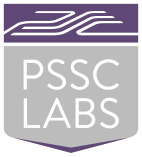“What was the name of that client we worked with two years ago?” “Which folder has the files with last year’s marketing campaigns?” Such questions are typical in most businesses. Unfortunately, the constant hunt for information within organizations consumes enormous amounts of time. In fact, it is estimated that knowledge workers spend almost 20% of their time searching for and gathering information. That’s roughly 10 hours a week, or a quarter of their time in the office.
For years, businesses have tried to make the information search process easier in one of two ways. They have either used rudimentary systems based on keyword search queries. Or, they have employed monolithic content management systems with better search capabilities, but typically exclude data stored outside of the system.
Unfortunately, these traditional enterprise search tools are not enough in today’s fast-paced, data-driven business environments. Exasperating the issue is COVID-19. It’s a good bet the time dedicated to search is even greater now with most people working from home during the pandemic. Workers have lost their in-office network where they can turn around and ask an office mate for help.
Such conditions have given rise to the need for intelligent enterprise search. Ideally, an intelligent enterprise search solution would extend search to data from all sources (applications, email, network shares, intranets, websites, databases, social media, and more). And would use artificial intelligence (AI) powered search techniques to deliver insightful information to every query.
Characteristics of Intelligent Search
What makes a search intelligent? Traditional enterprise search has always been based on entering keywords and getting a long list of results the user had to wade through. Intelligent search uses AI to help with content classification and to personalize search results based on a user’s previous searches. For instance, an AI-based intelligent search solution might analyze a person’s past queries, spot patterns, and suggest customized keywords or search terms.
Combining AI and search also allows for new and expanded search capabilities. For example, Natural Language Processing, as well as intelligence image and video analysis technology, can extend search to images, videos, audio, and multimedia content. Such functionality was never available with old-style keyword search.
Even higher-level capabilities are possible. For instance, solutions could leverage AI and machine learning techniques that enable a system to become self-learning. So, each time a user searches, results are refined and improved based on what the user considered valuable from previous searches. In this way, delivered information is personalized and optimized to meet a user’s needs.
Systems Requirements Grow
Intelligent enterprise search requires lots of processing power (supplied by high-performance CPUs and GPUS), massive amounts of storage, and superior data management capabilities. Systems also must be optimized for AI workloads.
This is an area where PSSC Labs can help. PSSC Labs has a more than 30 years history of delivering systems that meet the most demanding workloads across industries, government, and academia.
It offers a wide range of systems ideally suited for AI applications. To achieve the necessary performance, its AI deployments typically make use of GPU processing arrays. For workloads to run cost-effectively, the solutions support high data rates to keep the processors satiated. That, in turn, dictates the use of ultrafast interconnect technology and tightly coupled high-performance storage.
The challenge for most companies is that they might have system expertise in HPC, but often not in AI. As such, there may be a skills gap that makes it hard to bring together the essential elements and fine-tune the system’s performance for critical enterprise intelligent search workloads.
To overcome such issues, many companies are looking for turnkey solutions that combine the needed processing, storage, memory, and interconnect technologies for AI into a tightly integrated system.
Delivering such a solution requires expertise and real-world best practices across both HPC and AI domains, plus deep industry knowledge about the specific data sources and search applications.
Beyond general systems for AI workloads, PSSC Labs also offers a solution specifically designed for intelligent search. The Daedalus Enterprise Search Appliance is a turnkey, high-performance computing platform powered by Elastic and certified compatible with Elastic Cloud Enterprise (ECE), which allows users to centrally manage and monitor their Elasticsearch deployments for use cases like search, observability, and security. The system includes all necessary hardware, networking, support, and software for a simple, one-step deployment.
Such solutions are increasingly important as the volumes of data companies use grows, and the need to find information quickly becomes critical to success. Get in touch with a Solutions Architect today to learn how the Daedalus Enterprise Search Appliance can simplify your business processes and streamline your work objectives.

